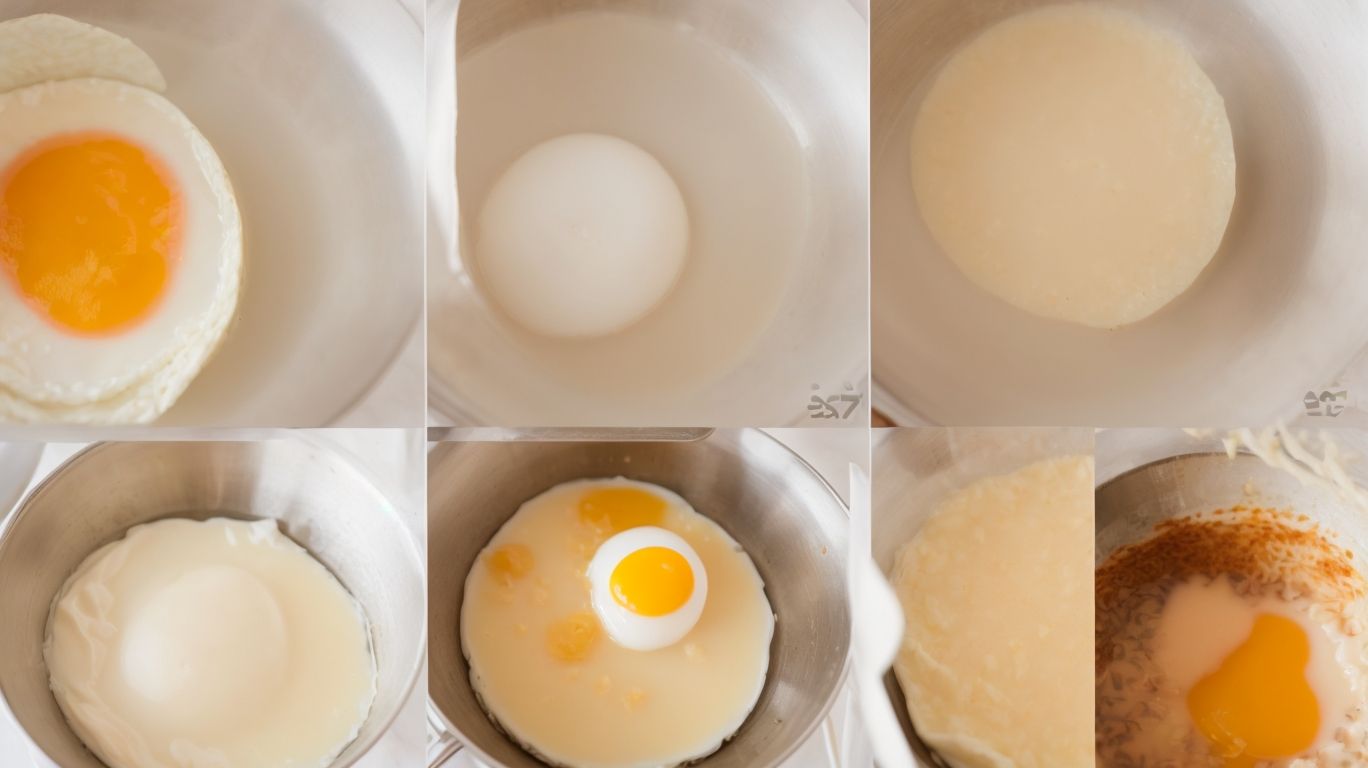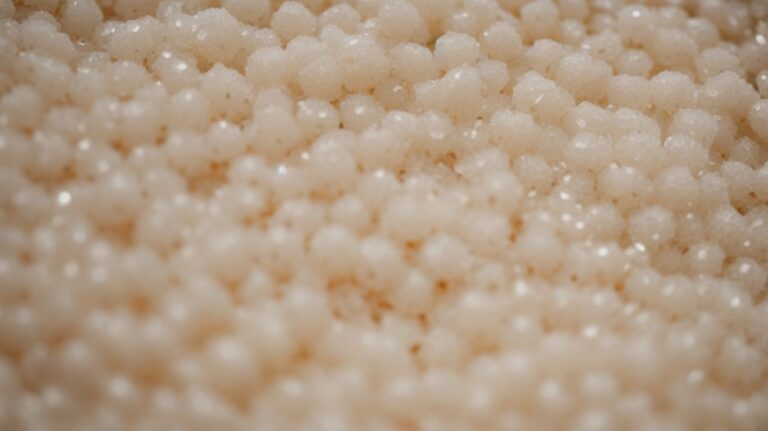How to Cook Egg for Ramen?
Love ramen but want to take it to the next level? Adding eggs to your ramen not only boosts its protein and nutrient content but also enhances its flavor and texture.
We’ll explore the different types of eggs you can use for ramen, the best preparation and cooking methods for each type, and some expert tips and tricks for cooking eggs for ramen.
Get ready to elevate your ramen game and enjoy a delicious bowl with perfectly cooked eggs!
Key Takeaways:
Why Add Egg to Ramen?
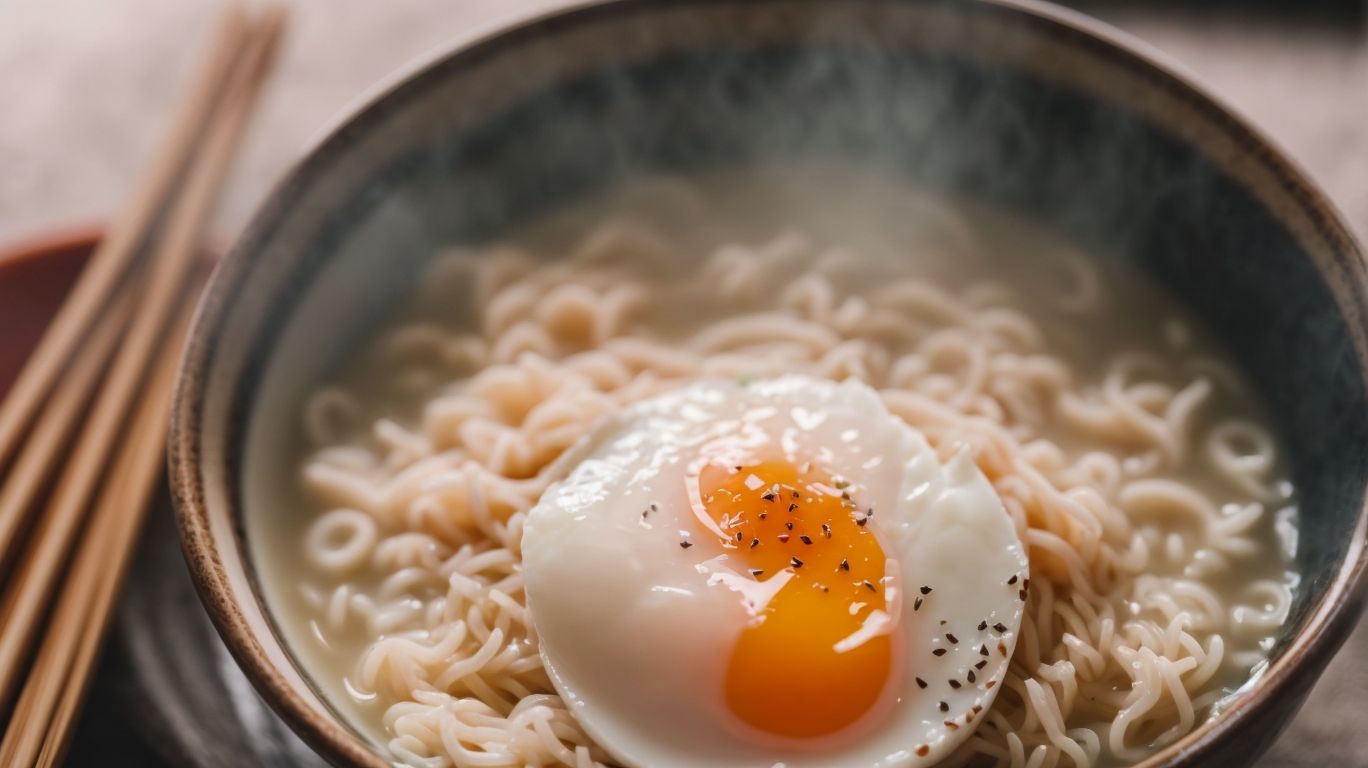
Credits: Poormet.Com – Sean Lee
Adding eggs to Ramen not only enriches the dish with protein and essential nutrients but also elevates the overall flavor profile, bringing a delightful umami essence to each bite.
This culinary marriage is not only about the nutritional value but also about the sensory experience it adds. The soft-boiled Ajitsuke Tamago, marinated in a flavorful mixture of soy sauce, mirin, and sugar, is a popular choice that perfectly complements the savory broth and noodles of Ramen. Known for their creamy yolk and tender white, these eggs infuse a sweet-savory note into the dish, enhancing its depth of flavors.
Adds Protein and Nutrients
Incorporating eggs into Ramen serves as a valuable source of protein and essential nutrients, contributing to a balanced and wholesome meal.
Ramen eggs, also known as Ajitsuke Tamago, are infused with flavors that not only elevate the taste but also add a nutritional boost. These eggs are marinated in a mixture of traditional Japanese ingredients like soy sauce, mirin, and sake, which not only tenderize the eggs but also provide a savory umami flavor.
Aside from being delicious, Ramen eggs are rich in protein which is vital for building and repairing tissues in the body. They contain essential vitamins and minerals like vitamin D and iron, contributing to overall health and well-being.
Enhances Flavor and Texture
The addition of eggs to Ramen not only enriches the dish with a velvety texture but also infuses it with a deep umami essence, enhancing the overall taste experience.
Ramen eggs play a crucial role in adding a creamy consistency to the broth, creating a delightful contrast with the chewy noodles and savory broth. These soft-boiled eggs are perfectly cooked to achieve a custard-like consistency, making them a luxurious addition to the bowl.
Ramen eggs have a unique ability to absorb the umami flavors of the broth, making each bite rich and flavorful. They act as sponges for the delicious soup, ensuring that every mouthful is packed with layers of taste.
Traditionally, Ramen bowls are topped with nori for a hint of oceanic essence and green onions for a fresh, aromatic finish, adding authentic Japanese elements to the dish.
Types of Eggs to Use for Ramen
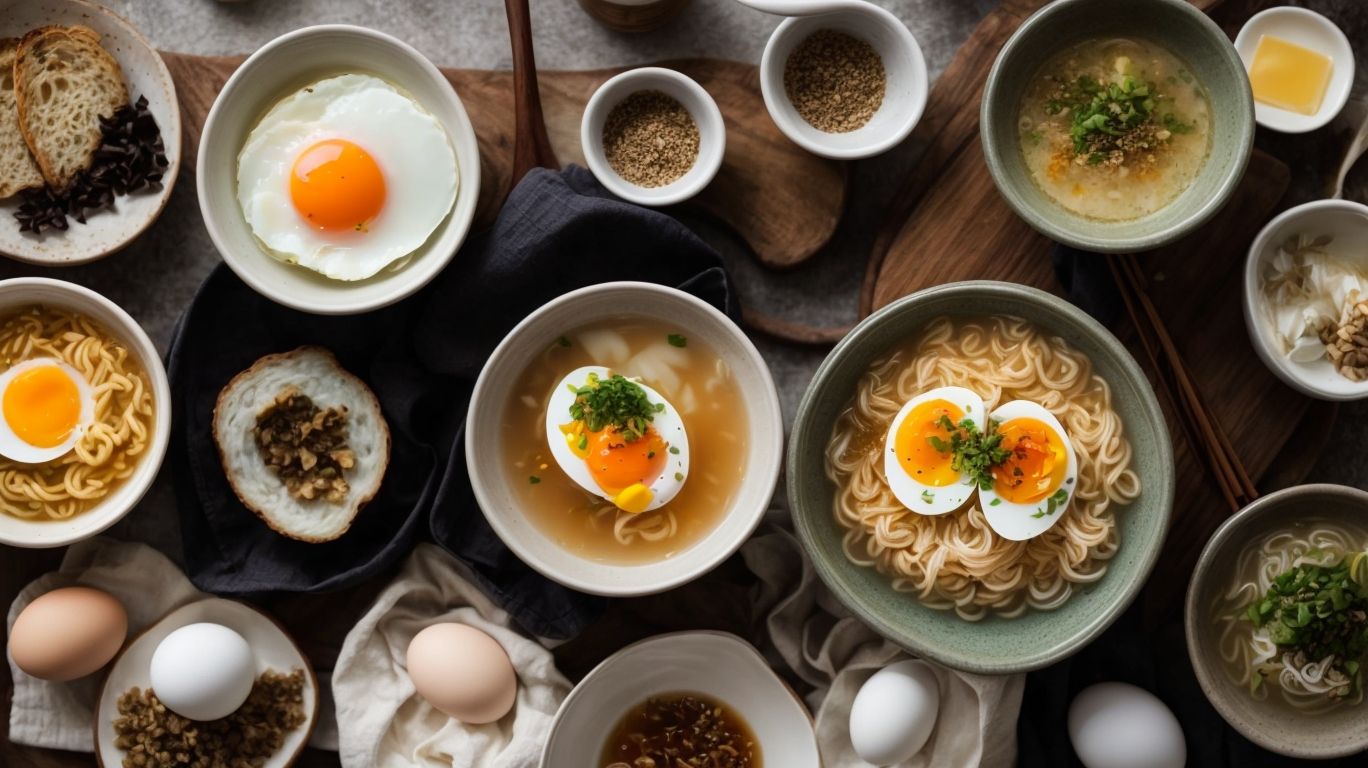
Credits: Poormet.Com – Bobby Robinson
When preparing Ramen, various types of eggs can be used to suit different preferences and culinary styles, ranging from soft-boiled and hard-boiled to poached and fried eggs.
Soft-boiled eggs, with their runny yolks and tender whites, add a creamy richness to the broth, creating a luxurious texture. On the other hand, hard-boiled eggs provide a firmer consistency, perfect for those who prefer a more substantial bite in their Ramen.
For those looking for a delicate touch, poached eggs gently bring a silky center to the dish, infusing the broth with a velvety smoothness. Meanwhile, fried eggs offer a savory twist, with their crispy edges and luscious yolks providing a burst of flavor.
Soft-boiled Eggs
Soft-boiled eggs are a popular choice for Ramen, offering a creamy yolk center that harmonizes perfectly with the savory broth and noodles.
The process of preparing these delectable eggs starts by bringing a pot of water to a gentle boil. Gently lower the eggs into the water using a slotted spoon, ensuring they are fully submerged. Allow them to cook for around 6-7 minutes for a perfect runny yolk consistency. Once cooked, transfer them to an ice bath to stop the cooking process. For Ajitsuke Tamago, peel the eggs and marinate them in a mixture of soy sauce, mirin, and broth for a few hours to infuse them with incredible flavor.
Hard-boiled Eggs
Hard-boiled eggs in Ramen provide a firm and fully cooked option, adding a contrasting texture to the dish and offering a more substantial bite.
These eggs, with their creamy yolks and resilient whites, are prepared by boiling them until the yolks are set and the whites are tender yet firm. This technique ensures that the eggs hold their shape and don’t become rubbery or overcooked.
When added to a steaming bowl of flavorful Ramen, the hard-boiled eggs bring a delightful balance to the noodles and savory broth, enriching the overall dining experience with a satisfying mix of textures.
Poached Eggs
Poached eggs in Ramen contribute silky and creamy yolks that add a luxurious texture to the dish, creating a velvety richness in every spoonful.
When preparing poached eggs for your Ramen, it’s essential to maintain the water at a gentle simmer, ideally around 180-190 degrees Fahrenheit. This gentle heat helps the eggs cook evenly, resulting in that desired silky yolk consistency. Swirling the water gently before adding the eggs can help create a uniform shape, ensuring that the yolk stays intact.
The poached eggs not only provide a visually appealing element to your Ramen bowl but also introduce an indulgent and creamy element that beautifully complements the noodles and broth.
Fried Eggs
Fried eggs bring a delightful crispiness and rich flavor to Ramen, offering a textural contrast that complements the broth and noodles.
When properly cooked, the fried eggs develop a golden, crispy edge that adds a satisfying crunch with every bite. The runny yolk adds a luxurious creaminess when it cascades into the steaming bowl of noodles, enhancing the overall indulgence of the dish. The interplay between the savory umami of the broth, the chewy noodles, and the crispy-edged fried eggs creates a harmonious symphony of flavors that dance on your taste buds.
Preparation and Cooking Methods for Eggs in Ramen
Mastering the art of preparing eggs for Ramen involves employing various cooking methods tailored to each egg type, ensuring optimal texture and flavor in every bowl.
Soft-boiled eggs should be immersed in boiling water for precisely 6-7 minutes for a runny yolk and firm whites, while hard-boiled eggs require around 10-12 minutes in the water.
Poached eggs are delicately cooked in simmering water with a hint of vinegar to help the whites set, typically for 3-4 minutes.
For a crispy fried egg to top your Ramen, crack the egg into a pan with hot oil and cook until the edges crisp up but the yolk remains runny, usually about 2-3 minutes. Each technique demands accuracy in timing for perfect results.
Soft-boiled Eggs: Perfectly Runny Yolks
Creating soft-boiled eggs with perfectly runny yolks for Ramen requires precise timing and a delicate touch to achieve the desired consistency that complements the dish.
When preparing soft-boiled eggs for Ramen, start by bringing a pot of water to a gentle boil. Lower the eggs into the water using a slotted spoon, ensuring they are fully submerged. Set a timer for precisely six minutes; this timing is crucial for achieving that luscious, custardy yolk.
Once the timer goes off, immediately transfer the eggs to an ice water bath to halt the cooking process. This step helps in preserving the delicate texture of the yolks and prevents overcooking. Carefully peel the eggs just before serving, revealing the velvety, golden centers that will enrich your Ramen broth with flavor.
Hard-boiled Eggs: Firm and Fully Cooked
Preparing hard-boiled eggs with a firm and fully cooked consistency for Ramen involves a straightforward cooking method that results in a substantial egg option for the dish.
One popular approach to achieving perfectly cooked hard-boiled eggs for Ramen is starting the eggs in a pot of cold water, ensuring they are fully submerged. Bringing the water to a gentle boil over medium heat and then reducing the heat to a simmer can help attain the desired firmness. The eggs should simmer for about 9-12 minutes for a creamy yolk and fully set whites. This technique guarantees eggs that are easy to peel and hold their shape well when sliced and added to the piping hot broth and noodles of your Ramen creation.
Poached Eggs: Silky and Creamy Yolks
Perfecting poached eggs with silky and creamy yolks for Ramen involves a gentle cooking process that results in a luxuriously textured egg addition to the dish.
To start the poaching process, bring a pot of water to a gentle simmer, ensuring the water is not boiling vigorously as this can cause the delicate egg whites to break apart.
Adding a splash of white vinegar or lemon juice to the water can help the egg whites coagulate faster, giving them a neater shape.
Carefully crack the fresh eggs into individual small ramekins or cups before gently sliding them into the simmering water.
Using a slotted spoon, gently swirl the water around the eggs to help them form a smooth, round shape.
Fried Eggs: Crispy and Flavorful
Cooking fried eggs to a crispy perfection for Ramen involves a quick and straightforward method that imparts a delightful crunch and rich flavor to the dish.
This process starts by heating a small amount of oil in a pan over medium heat until it shimmers slightly. Gently crack the eggs into the pan, ensuring they remain intact. Allow them to cook undisturbed until the edges become golden brown and crispy while the yolks stay lusciously runny.
The contrast between the crispy edges and gooey centers of the eggs adds a textural dimension that complements the smooth noodles and savory broth of the Ramen perfectly.
Tips and Tricks for Cooking Eggs for Ramen
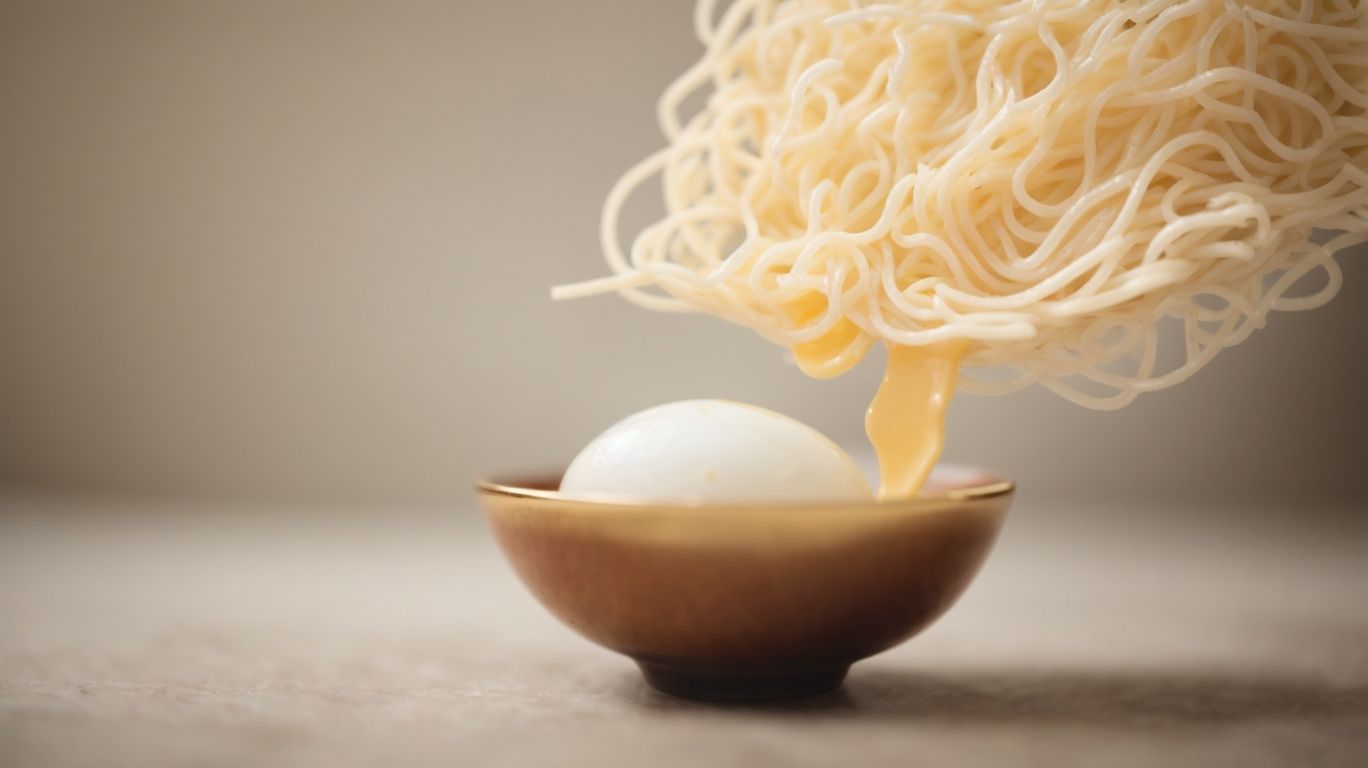
Credits: Poormet.Com – Philip Rivera
To elevate your Ramen experience, follow essential tips and tricks for cooking eggs that include using fresh ingredients, experimenting with seasonings, and exploring diverse cooking methods.
In terms of selecting fresh eggs for your Ramen, make sure the eggs have firm whites and bright yolks, as these characteristics indicate freshness and contribute to a richer flavor profile. Experiment with different seasonings such as soy sauce, mirin, or sesame oil to add depth and complexity to your broth. Japanese cooking traditions often include marinating soft-boiled eggs in a mixture of soy sauce and mirin to create delicious seasoned eggs known as ‘Ajitsuke Tamago.’ Feel free to try poaching or frying eggs to discover new textures and flavor combinations for your Ramen bowls.
Use Fresh Eggs
Selecting fresh eggs is essential for preparing high-quality Ramen dishes, as the freshness of the eggs directly impacts the overall taste and texture of the final meal.
When you crack open a fresh egg, you’re greeted with a vibrant yolk and tight, gelatinous whites that promise richness and flavor unmatched by eggs past their prime. The runny yolk of a fresh egg blends seamlessly into the broth, imparting a luxurious creaminess that elevates each spoonful of Ramen.
The whites of fresh eggs have a firmer consistency, holding their shape better when poached or soft-boiled, adding a delightful contrast in textures to your Ramen bowl. This interplay of textures keeps each bite exciting and indulgent.
Season the Eggs
Enhance the flavor profile of your Ramen eggs by seasoning them with traditional Japanese ingredients like soy sauce, mirin, and sake to imbue the dish with rich umami tones.
In Japanese cuisine, the art of seasoning eggs for Ramen is a delicate process that involves balancing salty, sweet, and savory flavors.
- Soy sauce provides a deep, savory taste.
- Mirin adds a touch of sweetness and enhances the glaze on the egg.
- For an authentic touch, incorporating sake not only tenderizes the egg but also brings a subtle complexity to the overall flavor profile.
By marinating the eggs in this concoction, you allow the flavors to harmonize and penetrate the egg layers, creating a deliciously seasoned treat that perfectly complements your Ramen bowl.
Experiment with Different Cooking Methods
Explore culinary creativity by experimenting with various cooking methods for eggs in Ramen, unlocking new flavor dimensions and textures that add depth to your dish.
Boiling eggs in Ramen creates a comforting and hearty meal, with the eggs taking on a creamy consistency and soaking up the broth’s rich flavors.
For a more delicate approach, try poaching the eggs directly in the simmering broth, allowing the yolks to remain runny for a luscious touch.
Frying eggs separately and placing them on top of your Ramen adds a crispy texture and an additional layer of richness.
And don’t forget to experiment with marinating soft-boiled eggs in soy sauce or mirin before adding them to your Ramen for an extra burst of umami goodness!
Conclusion: Enjoy Your Delicious Ramen with Perfectly Cooked Eggs
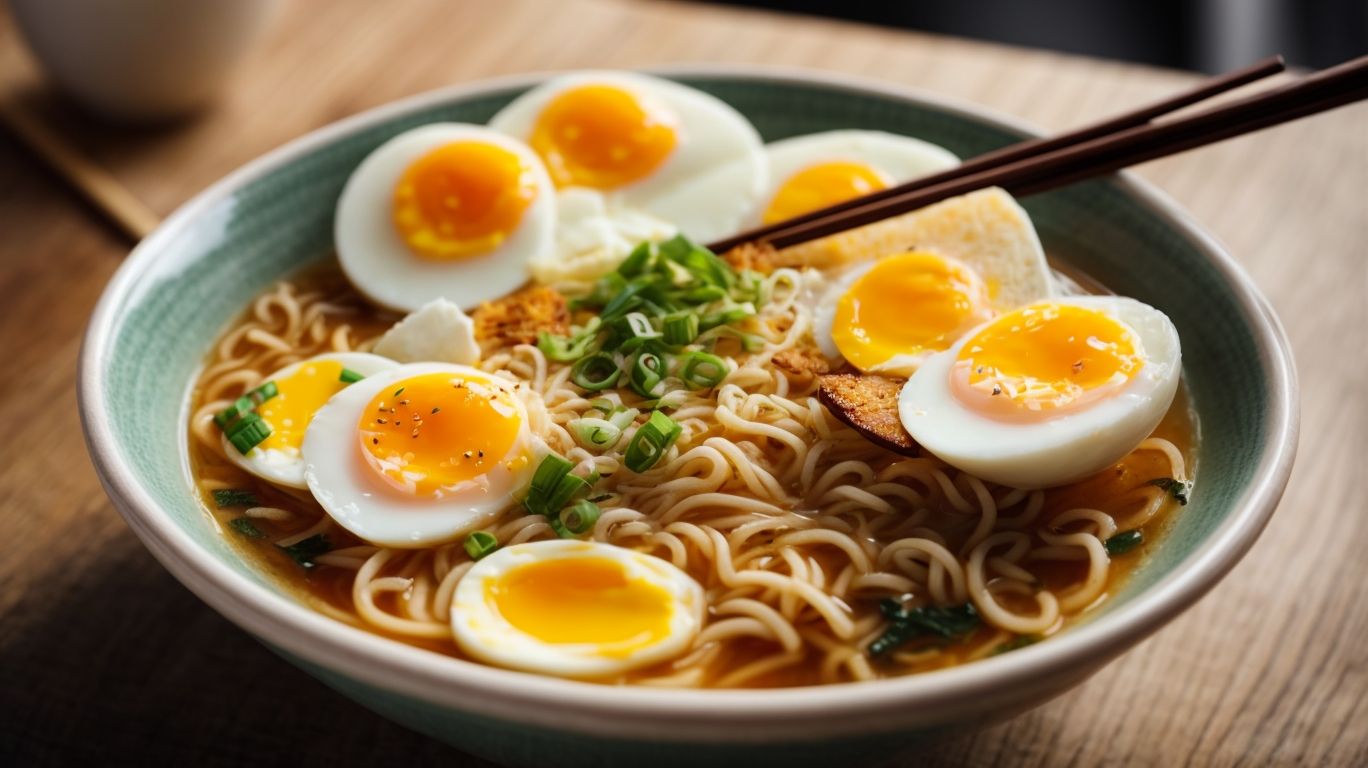
Credits: Poormet.Com – Stephen Campbell
Savor the delightful combination of perfectly cooked eggs and flavorful Ramen, embodying the essence of Japanese culinary excellence with every spoonful.
Perfectly cooked eggs can truly elevate your Ramen experience, striking a harmonious balance with the rich broth and noodles.
The creamy yolk adds a velvety texture, while the tender white provides a contrast in each bite.
Ensuring your eggs are cooked just right is essential to fully enjoy the interplay of flavors and textures in this iconic Japanese dish.

